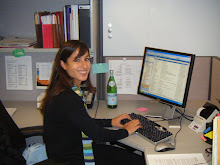Social networking is great for a lot of things. Connecting with family and friends, sharing pictures, mass communications and meeting new professional and personal acquaintances are just some of the many pluses. However, some of you may be skeptical as to whether or not social media is the new type of networking that will build the bridges towards your next career opportunity. It’s hard to believe that online communication could ever take the place of face-to-face interactions. To be honest with you, I don’t think it will. Studies show that the human brain reacts differently to physical interactions than any other type of digital interaction. More emotion is involved and people naturally need to “see before they can believe”. But (and this is a big one) I do believe that this will become a front loader to how you get a face-to-face interview. Bottom line, whether you like it or not, social media is catching on quicker than anyone expected and it’s being used for both personal and professional matters. If you want to stay competitive in this increasingly difficult job market, becoming familiar with social media is essential and here’s why:
Social networking is faster than traditional face-to-face networking. Gone are the days of driving or walking around to different offices to drop off applications in hope that the senior manager will happen to walk by, see your smiling face, and stop to chat. People are getting busier and busier in their jobs and the chances of anyone, with the authority to actually hire you, to come out and greet you when you drop off your application is slim to none. Social networking is on their time. Instead of spending time commuting from one location to another, you can interact with exponentially more people on social media sites. Plus, your profile is always available for them to view. If they’re too busy at that particular time, they can always come back to view your profile when they have time. This increases the chances of the hiring authority actually viewing your profile. If your profile is done right (see profile tips below) it will become similar to a Curriculum Vitae. Social networking is also more complete than a traditional resume. If you’ve ever been negated an interview because your resume didn’t show how you met all the qualifications (but you know you could do the job), then social networking is the perfect opportunity for you. Sites like Linked In and Gov Loop have opportunities for you to post pictures, extra curricular activities, join professional interest groups and best of all for people to post recommendations about you. These are all added bonuses for hiring authorities to view into just how qualified and well-rounded you are.
So yeah, social networking is great, but there is always a catch. Social networking can also be very dangerous to your professional career if you don’t keep it professional. As hiring managers continue to use social media tools to find candidates, they become more savvy on how to locate the not-so-good information about candidates as well. Examples being a girl who sent out a fairly negative tweet about the looks of an interviewer she just interviewed with, only to find out that company was following her tweets. Or the guy whose Facebook profile contained inappropriate pictures and wall posts from friends only to have the hiring authority happen upon it. The one thing you must always keep in mind when using social media is that once it’s online it’s there forever and, for the most part, available for everyone to see. That being said, don’t run off and cancel your accounts and vow never to use the internet again. Social media will work if you know how to use it correctly. The following are some tips:
TIPS
- If you don’t want your mother reading it, don’t make it public. Most social media sites have options for you to privatize certain parts of your profile. Whether you make your entire profile accessible only to accepted friends or simply pick and choose which parts you want to hide, the odds are if you’re using it for both personal and private use, you will want to edit at least part of the content that’s viewable to the public eye.
- Choose the right sites. Not every social networking site is professional. So far, I have found that Linked In (www.linkedin.com), GovLoop (www.govloop.com) and Facebook (www.facebook.com) seem to be the most popular professional sites. This doesn’t mean you can’t join the other sites but keep them private so that they don’t show up if a hiring authority runs a search on your name. Also, social media is changing quicker than most people can keep up. If you've found any other sites that you think are better for networking, please let me know.
- Join the right groups. There are a plethora of groups on social media sites. If you’re in the finance field, do a search on a page like Linked In to find any related groups. Once you join, you’re automatically connected to all the other professionals in that group. This makes your profile more visible to other people in your field and the chances of your profile being looked at by a hiring authority increase.
- Think about what you type. Social media sites are not formal as a resume but they do reflect your work. Spelling and grammatical errors can stick out like a sore thumb on your page. Make sure you put some thought into anything you post online and try not to use too much texting language (i.e. LOL or TTFN) or use a letter in place of a word (i.e. What R U doing L8r? Dunno, want 2 meet @ 8? K, sounds good. C U then.)
Michaela Favre favrem@wsdot.wa.gov 360-705-6932




